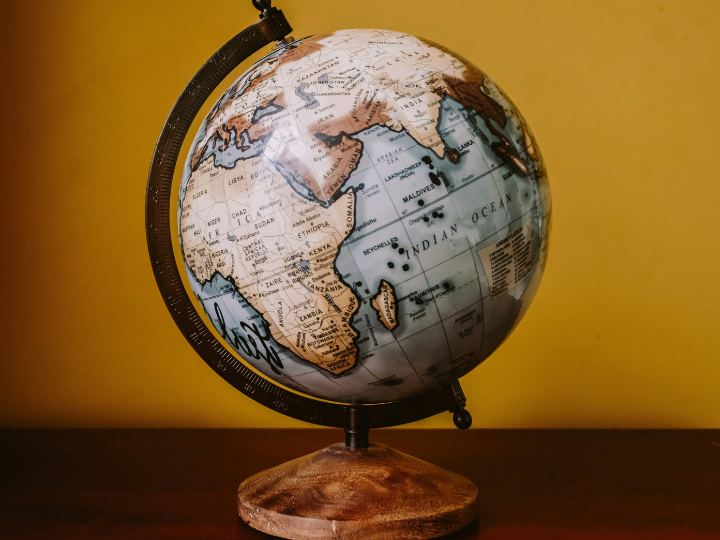by Giles Merritt*
Europe is retreating from Africa in what seems likely to be the greatest shift of all in the 21st century’s new era of tectonic geo-political change.
It is five hundred years since Henry the Navigator’s explorers set up Portuguese trading posts that eventually led to European colonialism. Africa was turned into fiefdoms that were exploited and fought over strictly by Europeans.
No longer; Europe is on the way out. As the EU’s foreign affairs and security policy chief Josep Borrell warned 18 months ago, “little by little, we are losing Africa.”
In that short time, the retreat has gathered pace. The EU, Germany, France and the UK have cut development funding, and a spate of military coups in seven countries of the Sahel region have seen democratic governments turned into autocracies.
Russia is filling the security vacuums there as fast as it can. Within months of France’s withdrawal of its troops from Mali last year, Moscow signed a security pact there, and others are imminent.
Just as Russia has been cosying up to Gabon, Niger, Burkina Faso, Chad, Guinea and Sudan since the spate of military coups began in late 2021, China is converting its ‘Belt and Road’ economic assistance into an overtly political and security presence.
In the Horn of Africa, it has built a strategically significant new railway link between the port of Djibouti, where it has a military base, and Addis Ababa, the Ethiopian capital that’s host to the African Union. In February, South Africa took part in a big naval exercise with China and Russia.
Five years ago, half of the African Union’s 55 nations were democracies. Now only a third, creating tempting opportunities for Moscow and Beijing. The EU and its member states are ill-suited to dealing with autocracies, and at the same time there’s growing dissatisfaction across Africa with Europe. The EU prides itself on being Africa’s biggest aid donor, but that’s no guarantee of popularity; frictions over terms of trade, development aid conditions, limited access to new technologies and ever-higher barriers to migrants have soured relations.
Europeans have puzzlingly contradictory attitudes to Africa. Although governments and corporate boardrooms are well aware of their need for its vast mineral and human resources, they have nevertheless neglected Africa and stunted its growth. The EU’s ‘navel gazing’ focus has for three decades been on enlargement and its internal challenges, and while these may explain shortcomings, in African eyes, they don’t excuse them.
African countries made up half of those that abstained from the UN Resolution condemning Russia’s Ukraine invasion. Since then, the African Union has openly snubbed the EU by abruptly cancelling their annual summit, while South Africa has for the past year ignored Brussels’ attempts to open bi-lateral trade negotiations.
Europe runs an embarrassingly large trade surplus with Africa of €25 billion a year, with barriers to goods and foodstuffs severely limiting Africans’ hard currency earnings. The European Commission stresses that its Global Gateway initiative will boost investment in Africans’ infrastructure and clean energy to over €20 billion a year, but that hasn’t been greeted with wild enthusiasm. The small print is that in the first two months of this year some €5 billion has been lopped off this aid because of Ukraine’s needs and belt-tightening in France and Germany.
The war in Ukraine is widely seen by Africans as siphoning off cash and credits that would otherwise go to them. The EU currently transfers as much to Ukraine as to the whole of Africa. This doesn’t go down well when African policymakers look at their own soaring infrastructural needs. The African Development Bank reckons the continent’s investment requirements at $150 billion a year, but total finance stands at only $60 billion.
At a strategic level, no one can deny Africa’s towering importance and the short-sightedness of European policies there. Its mineral resources and agricultural potential are vast, and in manpower terms it is already beginning to dwarf China and India. But strategic awareness isn’t the same as practical commitment.
Africans increasingly judge the EU’s development effort to be inadequate. Many NGOs and specialist organisations agree and call for a massive re-think in Brussels and the national capitals. The repackaging of longstanding policies and the adding of new layers clearly hasn’t been enough, and unless a forceful new drive is launched soon it may be too late. Europe’s influence has long been unchallenged in Africa, but now other powers are outbidding it.
*Founder of Friends of Europe
**first published in: Friendsofeurope.org




 By: N. Peter Kramer
By: N. Peter Kramer

